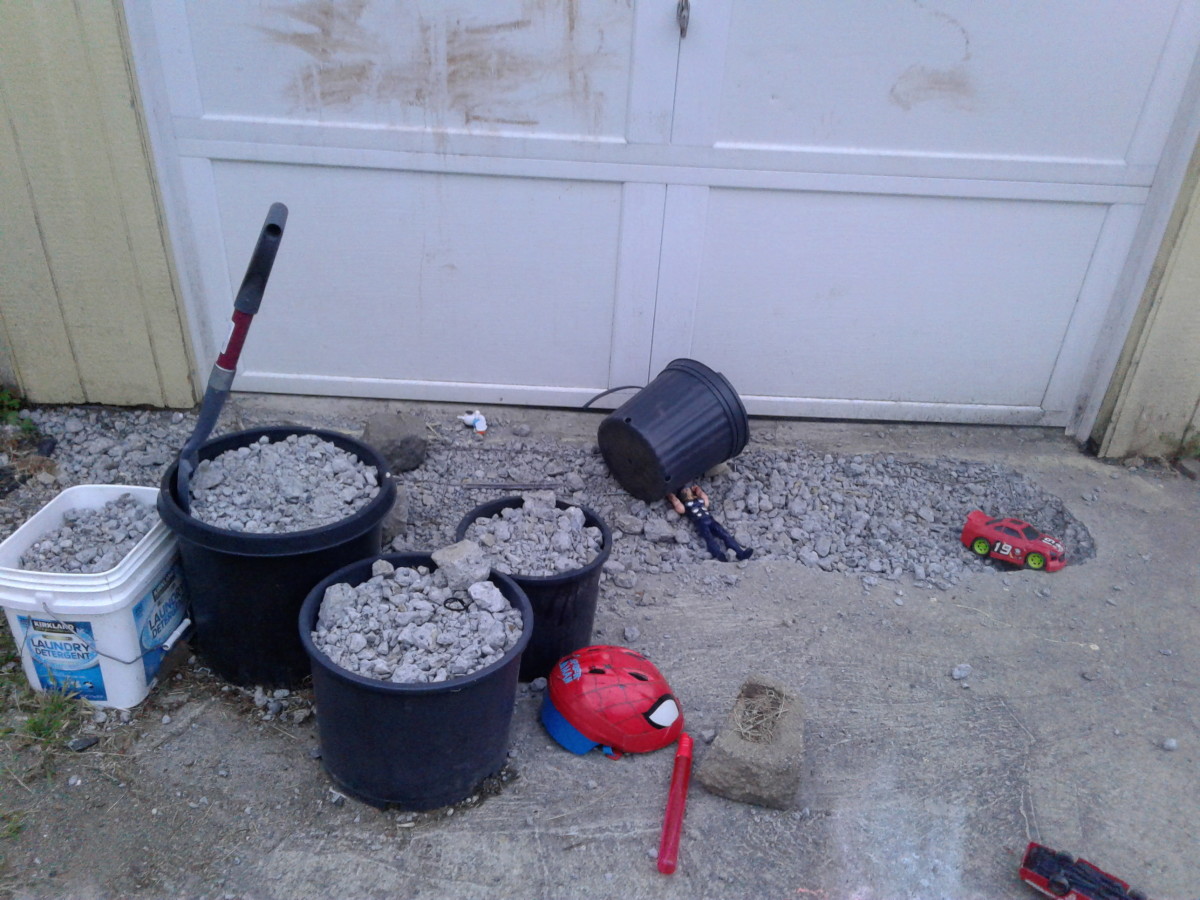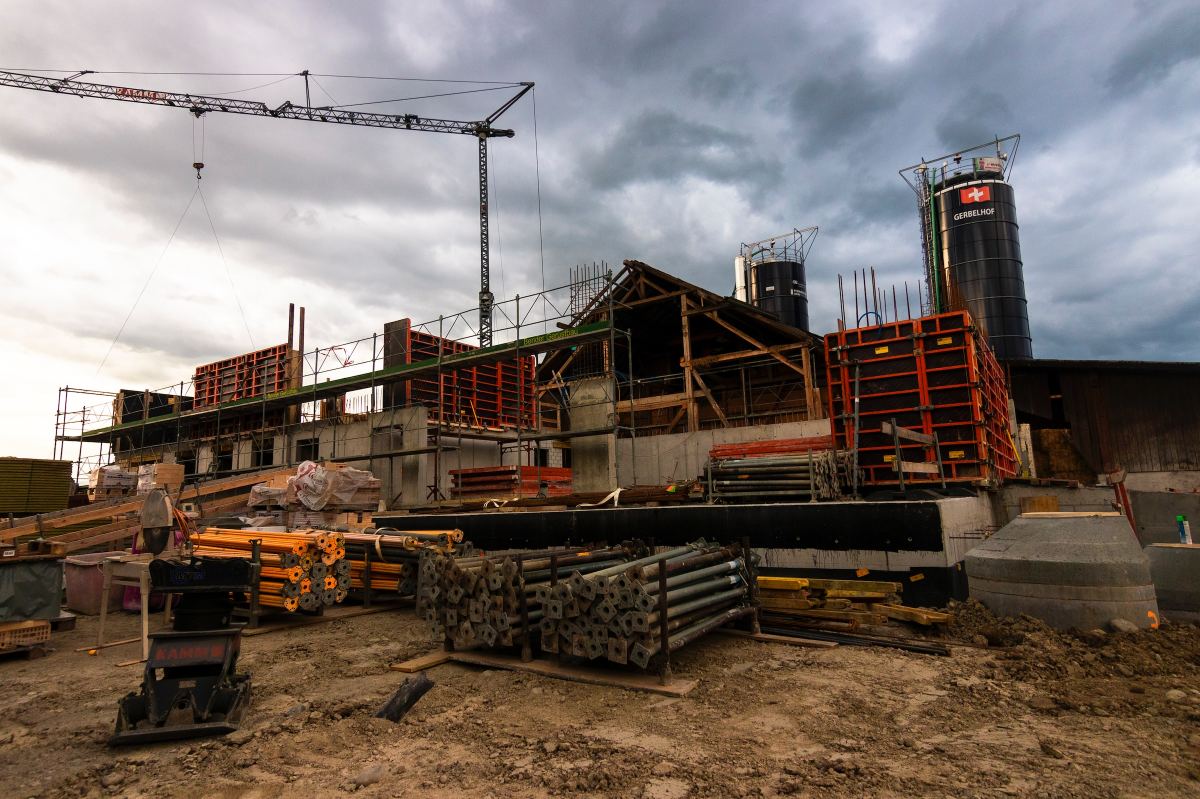Tips and suggestion that can help the homeowner understands if the contractor has done a good job.
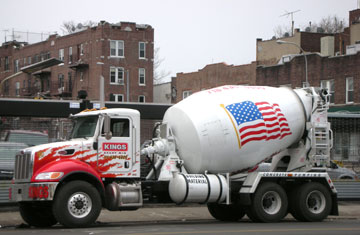
Most often the homeowner fail to asked the contractor to sign a written contract before the work begins.
As a former mixer, my job was to mix concrete to local & large size contractors. Home owners who might be planning to repair their side walk, drive ways, back yard & basements, this information is for you to know. As a former mixer, I can help you the home owner understands a few key components about the work done by the contractor you have hired to do the job. Knowing what these key components are, you’ll be able to detect from the start if a job is not being performed to your satisfaction.
First, you must be cautious about the contract you signed to have this work done. You should know that the contract you signed, most often is referred to as a bilateral contract. In this case, the home owner promised to pay the contractor X amount of money to repair his driveway, side walk, back yard or whatever it maybe. And considering the price and capacity of the job, the contractor may accept the offer. If the contractor accepts, you’re now engage in a bilateral contract with the local contractor. In this situation, this contract is said to be a binding contract because all the requirements that is necessary to make it so are present.
However, most often the homeowner failed to ask the contractor to sign a written contract before the work begins. In this particular case, the offer is known as an implied contract, this type of contract although it is equally enforceable as a bilateral contract; it's harder to dispute it in the courts of law. The main different between bilateral and implied contract are merely the manner in which the parties manifest assent. Assent is the act of agreeing to something after thoughtful consideration.
Therefore, homeowners must make sure that they "execute" or sign a bilateral contract. All subjects that are part of the job must be included within the writing contract; otherwise once the contractor received most of the payments, they can easily excuse themselves from the obligation. They often tell the homeowner that this or that was not part of deal. Until all work assigned under the contract is executed, the contract is said to be in its "executory" stage. However, if you're told by your contractor after making your paying, that they're not responsible for a particular project, even if it was not written in the contract you should not let slip by. They do that occasionally, especially if they have another job line up or the contractor miscalculated the capacity of the job and realized that his been under paid.
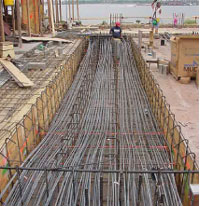
Concrete prepared for foundations are much thicker in concentration than most common jobs.
*Skill Jobs concrete mixing:*
There are different natural conditions that can affect how those ingredients are mixed within the barrel of the truck. But no matter what the conditions are your work should not suffer as a result of it. Good quality work is what you the homeowner pay for, and look forward to accept. The mixer will mix according to contractor’s satisfaction; the problem that can develop there is that not all contractors will deliver on good quality cement with a fair amount of PSI for a durable driveway. You should try asking about the PSI content of the mix relative to cost, and whether you should consider more PSI for a long durable driveway.
The composition of concrete varies depending on the job it is being used for.The conditions that affects how a load of sand, stone & cements is mixed together with water are as follow:
1) The nature of the job
2) Temperature
3) Weather conditions
4) The equipment that is being used to retrieve the cement
5) Time.
Time is a factor to consider because the longer it takes for the contractor to retrieve the mix from the truck barrel the hotter the mix gets, and the harder it becomes to work with; which can cause lumps and air bubble to develop after laying the concrete. Avoid doing your driveway under extreme temperature, heat waves, the mix can get very hot in the barrel of the truck, and after reaching a certain temperature it will no longer be good for use. Lets say 100 degree Fahrenheit temperature; at that temperature the concrete is cooked in the barrel, and if laid in your driveway will break very quickly.
The reason why the mixer keeps the barrel of the truck in motion is to prevent it from forming meatballs. The possibility that the cement may dry inside the barrel is very likely if stayed motionless. For that reason, the faster the contractor retrieve the cement from the barrel, the better the mix, and the more likely that the concrete will come out ok and hold firm. Therefore, “time is of the essence” always look to see if the job is being done as schedule.
*Skill Jobs concrete mixing:*
When having your driveway paved under an extremely hot climate, it is advisable that you ask the contractor to monitor the temperature of the cement so that you make sure it is not over 100 degree Fahrenheit. Any mixture that reaches a temperature above 100 degree Fahrenheit should not be used, except perhaps under extremely cold conditions where water, sand and broken stones are heated up so that when it mixes together with cements to be poured, the temperature is below 100 degree Fahrenheit.
In cold temperature, it is common that the cement plant that loads the barrel might add salt in the water so that the cement isn't frozen and the mix isn't to hard. This is done to prevent the concrete from hardened, but for this practice to serve its purpose; the outside temperature must not have been too lo, lets say (below 20 degrees Fahrenheit, not a working condition) otherwise any job that is performed under such temperature will cause the cement to produce lumps when mixed with water, and also frost in the mix. Therefore, the salt is added to the water so that it lowers the water’s freezing point under extremely cold temperature but it does not keep it warm. Water freezes at 32 ° Fahrenheit but when in the barrel is in motion it increase the barrel temperature because of friction.
I hope these tips will help you make better choices when consider contractors for your driveways, backyard, porches, sidewalk etc, And for those of us who are interested in applying for a job position as a mixer i'd like to inform you that some company do hire unexpected mixer, the only,requirement is that you have some commercial driving experience. These companies do not want to focus on your driving, they want to know that you can mix.




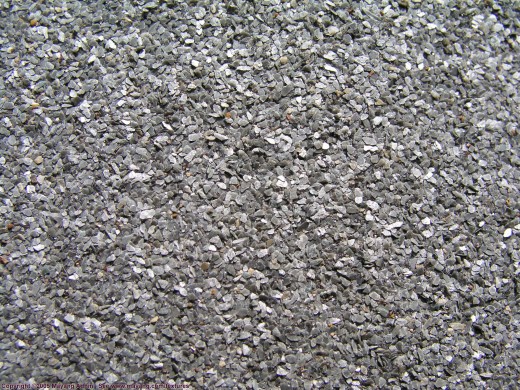

the composition of concrete varies depending on the job it is being use for.
The conditions that effects how a load of sand, stone & cements are mix together with water are as follow: 1)The nature of the job, 2) temperature 3) weather conditions 4) the equipment that is being used to retrieve the mix & 4) time. Time is a factor because the longer it takes for the contractor to retrieve the mix from the truck barrel, the hotter the mix gets and the harder it becomes to work with. Especially on a hot day, the mix can get very hot in that barrel. Taking into account that the mixer must keep the concrete in motion to help prevent it from forming meatballs, the possibility for it to heats up under high temperature is likely. For that reason, the faster the contractor retrieves the cement the better the concrete will hold.
Any mixture that reaches a temperature above 100 degree Fahrenheit should not be used, except perhaps in extreme cold conditions where water, sand and broken stones are heated up so that when they mix together with cements to be poured, the temperature is below 100 degree. In cold temperature, it is common for the plants that load the barrel to add salt into the water. This is done to prevent concrete from hardened but for this practice to serve its purpose, the temperature must not be too low (below 0) otherwise they will be lumps and frost in the mix. The salt is added to the water so that it lowers the water’s freezing point in extremely cold temperature but it does not keep it warm.
As a home owner, you’re not aware of all these conditions so therefore they don’t concern you. However, it is until the job is complete, 2-3 months later that you realized the new laid concrete has starting to crack. That raises suspicion, you try calling the contractor back, you can reach him, when you finally got him he tells you he’s not responsible. Since they were no written contract, it’s now his words against yours. So he changes the terms and conditions applied in the oral contract, making it harder for you to beat the case. You should always make sure you have a bidding written contract before you hands out any money. As a mixer, we won’t even mix a load for a contractor without getting our money first, less off drop it and we deal with them on a daily basis

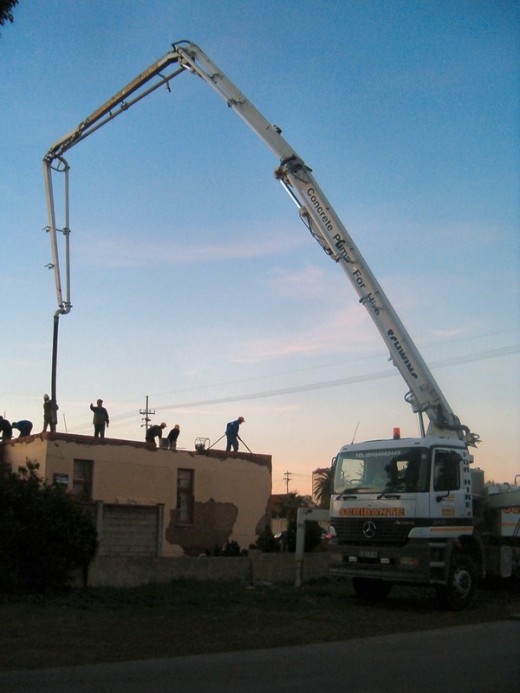

If a pump is used, the concentration of the mix will be degraded but that also depends on the diameter of the tubes.
*Skill Jobs concrete mixing:*
Weather condition can affect a contractor’s job performance. For instant if the temperature is too hot or it suddenly started to rain. If it is too hot, it may be required that the mixer mix the concrete to a lower grade. In this case the higher the number the lower the concentration of the mix. When water is added in a mix, it increases the volume and decreases the temperature of the mix; it does not improve the concentration. As a matter fact, the less water in a mixture the stronger the concentration, but without water there is no mixture, no concrete. Therefore, we can say water is the main ingredient which links sands, stones, cements together for these products to be useful.
However, if the job requires that the contractor pours the concrete in a basement, a pump may be necessary. In which case a lower concentration will be necessary, it will all depend on the size of the tubes diameter that are used to carry the mixture to the area under construction. Nonetheless, whether the job is in a basement or not, any concentration above grade #7 will be unacceptable. As it should be known, the more diluted the existing cement within the mixture is, the lesser the strength of the concrete.
Another important point is that as a homeowner, you should never offer to buy the concrete from the supplier thinking that it will alleviate you from the total cost owed to the contractor. If anything you are alleviating the contractor from his obligation because now his no longer fully responsible for the job. So do yourself a favor, allow the contractor to get all that is necessary to get the job done, engage in a written bilateral contract with the contractor and be there when the concrete is being poured. As they say, an educated customer is the best customer. Well, be that educated customer; make sure you get what you paid for- the end result should be to your satisfaction.



